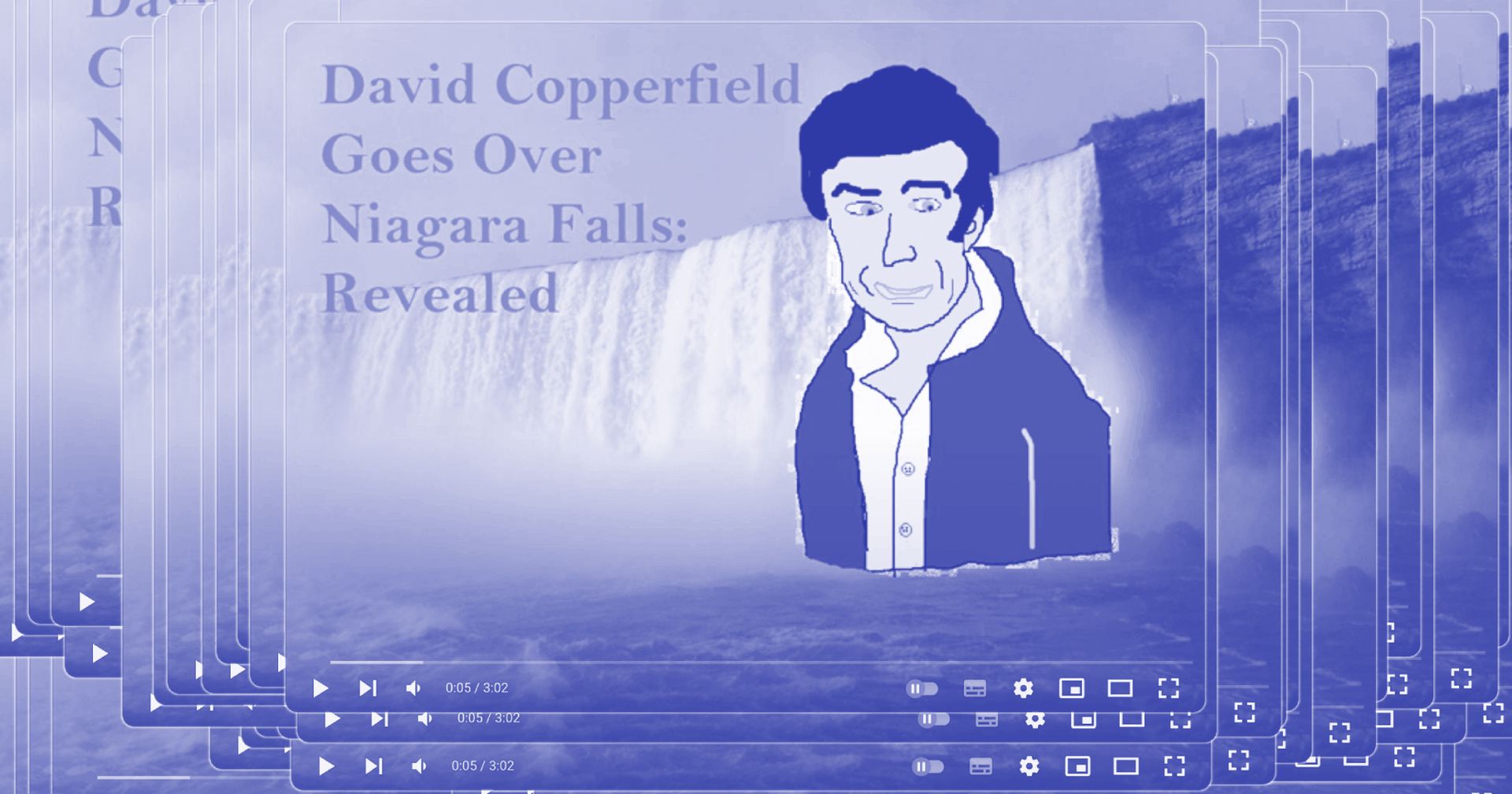If you search online for "David Copperfield magic revealed," there's a good chance you'll come across results posted by David Copperfield himself.
In a 2023 interview with CBS Sunday Morning, the magician revealed that he uploads fake videos explaining his own illusions. While it might sound very strange at first, it actually reveals a clever strategy.
The interview doesn't provide much context on this claim, and unfortunately, it's not easy to find additional information on the subject from him. So we have no idea when he started doing it or where he posts this type of content, but it's safe to assume that platforms like YouTube and Reddit would be at the top of his list.
In the interview, he says he does it to keep the real secrets hidden — and, in his own words, "because it's fun." The strategy clearly aims to mislead those actively hunting for real methods. By manipulating the algorithm and pushing viewers toward fake explanations, he protects his secrets and deters exposure-hunters.
Let's be upfront about the very real possibility that Copperfield was bluffing when he said this. By telling the public he uploads fake exposure videos to the internet, he arguably succeeds in two goals:
This puts people off seeking them out. What is the point of looking for the method if you know there are lots of fake method videos online?
This discredits real exposure videos. The genuine exposure videos might be taken less seriously when you believe some are fake.
We at One Ahead have concluded that it's worth taking Copperfield at his word and examining this strategy as much more than a bluff. If you tell people you are uploading fake videos and you happen to be a billionaire, you might as well follow through. If this was a calculated bluff, it seems odd to have only said so once.
Uploading tens or maybe even hundreds of fake exposure content onto the internet might actually be an incredibly smart move.
Does This Really Work?
If you're anything like me, you'll probably spend a good amount of time on YouTube trying to guess which exposure videos Copperfield might have secretly created to deceive the curious.
But it's also good to ask more questions, and make some deeper reflections on this strategy. First and foremost – does this even work?
It's hard to tell, as we could hardly figure out which videos might be his fake creations. There's also the question of how "fake" he wants these videos to be: ideally, they should make just enough sense to satisfy the viewer, without veering into completely implausible territory.
People will realise pretty quickly when an exposure is misleading, and quickly let the online world know with a not-so-positive comment about the time they just wasted.
Still, Copperfield’s videos must be out there—somewhere—hiding in plain sight among the countless exposure clips. We started to look for them, and we soon found that he was not the only magician using this strategy.
If it's hard to determine whether the strategy truly works, it's safer to assume that it doesn't harm the magician. On the contrary, it might even help by boosting visibility and feeding the algorithm with strong keywords.
Additionally, the concept of viewers encountering fake exposure videos has some intriguing implications. If they fully believe in one of Copperfield's false methods, it's as if they've been fooled by the magician not just during the performance, but throughout their entire effort to uncover the secret.
On the flip side, if viewers sense that one or more videos fail to accurately explain the illusion, they might fall into a different kind of trap: "If no one can explain this online, the illusion must be really good."
The strategy seems quite effective—though, as mentioned, it's difficult to measure how well it works or how many people have been influenced by these fake views.
Although people have been speculating for decades on Copperfield's secret methods, a new wave of interest in the subject came when the magician was forced to expose one of his illusions for real, as part of a lawsuit.
In 2018, Copperfield's executive producer, Chris Kenner, was required to reveal in court the secret behind one of the magician's illusions, in which several audience members vanished on stage. The disclosure came as part of a negligence lawsuit filed by a British man who was injured during the performance.
We'll never know if that episode was what inspired Copperfield to start seeding fake content into search results.
To better understand the potential of the magician's strategy, we revisited earlier examples that stood out — and quickly realised Copperfield wasn’t the first to use it.
Subscribe to One Ahead to read the rest.
Become a member to get instant access to this edition and 300+ more editions packed with magic methods, insights, and secrets.
Unlock Now


